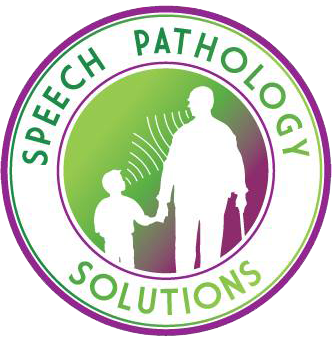Orofacial myofunctional disorders (OMD) are abnormal movement patterns of the face and mouth which affect an individual’s ability to properly use the muscles of the face, mouth, and throat. OMD can cause difficulties with speech, eating, and breathing. Let’s explore the symptoms, causes, and impact of OMD, and how speech therapy can help.
Symptoms of Orofacial Myofunctional Disorders
OMD can manifest in one or more physical symptoms. These include:
- Tongue thrusting or pressing the tongue against the teeth during speech or swallowing
- Open mouth posture
- Chronic mouth breathing
- Difficulty chewing or swallowing food
- Speech difficulties such as lisping, slurring, or difficulty pronouncing certain sounds
Causes of OMD
There is no single definitive cause of orofacial myofunctional disorders. Some possible contributing factors include:
- Genetics: Some individuals may be more predisposed to developing these conditions due to genetic factors.
- Oral habits: Prolonged thumb sucking, pacifier use, or bottle feeding beyond infancy can contribute to the development of OMD.
- Airway obstruction: Chronic mouth breathing due to allergies, asthma, or other respiratory conditions can contribute to OMD.
- Misalignment of the teeth: An overbite, underbite, or a narrowing of the roof of the mouth can be a factor in OMD. These can be genetic or a result of inappropriate oral habits.

The Impact of OMD
Orofacial myofunctional disorders can significantly impact an individual’s life in various ways.
- Swallowing: OMDs can have a significant impact on the oral phase of swallowing, which is the initial stage of the swallowing process that begins with the placement of food or liquid in the mouth. This makes it more difficult to properly manipulate food and liquids in the mouth and increases the risk of choking and aspiration.
- Communication difficulties: OMD can cause difficulties in speaking clearly, which can lead to communication challenges. The person may struggle to express themselves or be misunderstood by others, leading to frustration and isolation.
- Social challenges: Difficulty speaking clearly can also lead to social challenges, as the person may feel embarrassed or self-conscious in social situations. They may avoid socializing or participating in activities that require speaking, which can impact their relationships and quality of life.
- Academic and occupational challenges: Speech disorders can also impact a person’s academic and occupational performance. They may struggle to participate in class or meetings, and their communication challenges may limit their job opportunities or advancement.
- Emotional impact: Living with a speech disorder can be emotionally challenging, particularly if the person experiences negative reactions from others or feels ashamed of their speech difficulties. This can lead to feelings of anxiety, depression, or low self-esteem.
- Physical challenges: Some individuals with OMD may also experience physical challenges, such as fatigue or pain when speaking, which can make communication even more challenging.
It is important to seek support and treatment to manage these challenges and improve the quality of life.
Treating Orofacial Myofunctional Disorders
To effectively treat OMD the cause must first be identified. A speech-language pathologist SLP specifically trained in OMD or an orofacial myologist will possess the necessary skills to assess OMD and implement appropriate remedial measures. Any existing dental abnormalities and airway interferences must first be evaluated and addressed. Once these issues have been addressed, speech-language therapy can begin.
Orofacial myofunctional therapy can include:
- Muscle-based therapy to address underlying muscle weakness and instability of the jaw, lips, and tongue
- Exercises to reposition the tongue tip at rest and during swallowing
- Exercises to establish a stable nasal pattern of breathing following successful resolution of airway interferences
- Exercise to create a normal vertical rest dimension between the jaws and teeth and implement appropriate remedial measures. They focus on oral physical problems, especially involving the tongue, that hinder typical swallowing and speech development.
Speech Pathology Solutions
At Speech Pathology Solutions, we provide the highest quality of speech therapy in NJ for individuals with orofacial myofunctional disorders. Every client receives a comprehensive standardized evaluation that enables our therapists to create a treatment plan that addresses your specific challenges. Our mission is to provide comprehensive, affordable, and convenient skilled Speech Language Pathology services for Monmouth, Ocean, and Atlantic County residents.
Contact us today to schedule a comprehensive evaluation and let us determine effective therapy to help you improve your speech and overcome the challenges of OMD.


